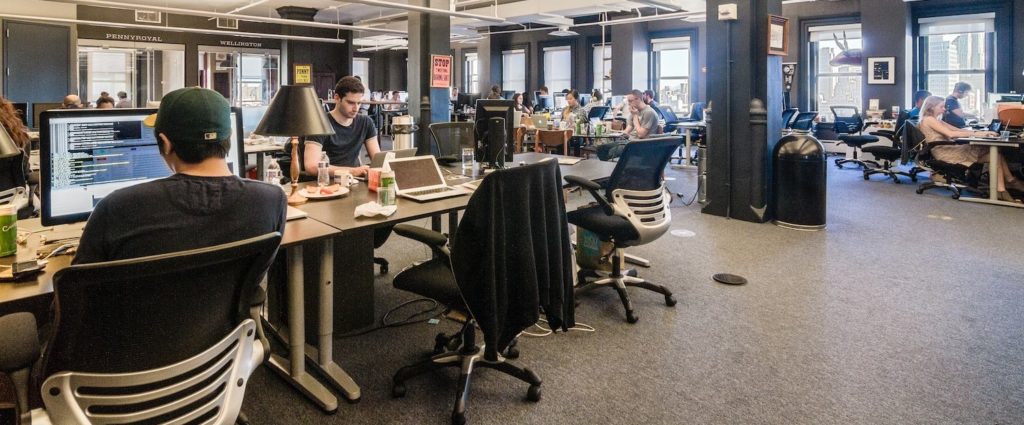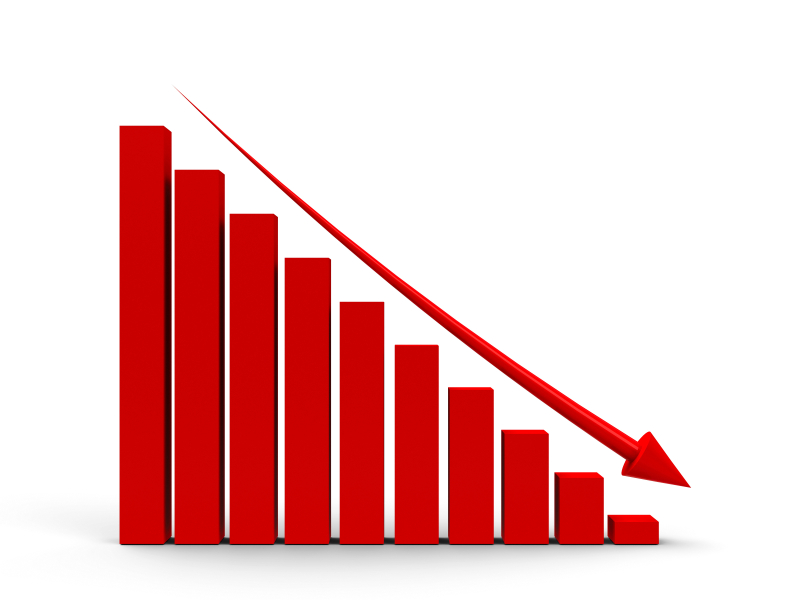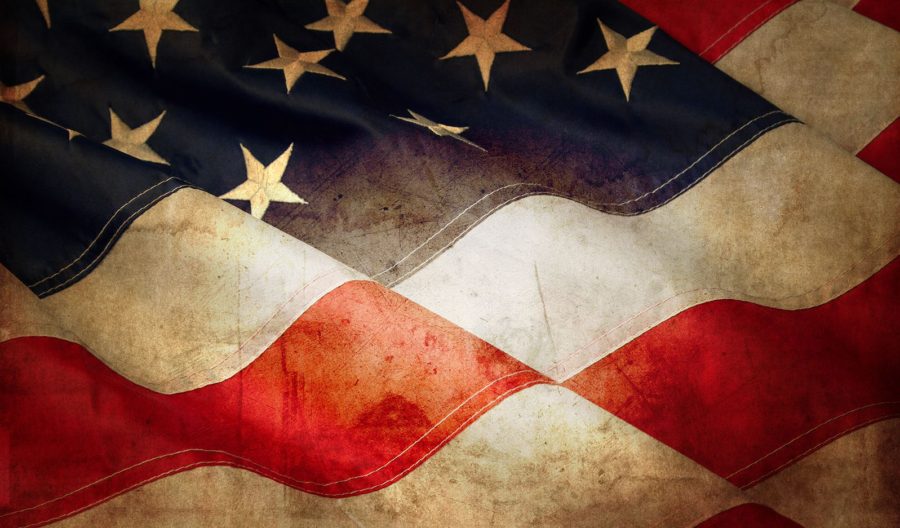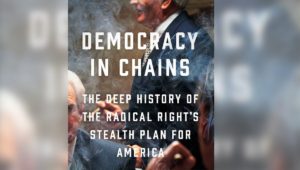

TLDR (Too Long, Didn’t Read):
Universal basic income (UBI) will probably help America. UBI will not make people lazy. Automation will probably increase the number of jobs in America instead of decreasing them. Meaningful work is very different than meaningless wage labor. The suggestion that people should find identity and meaning through wage labor is cruel. Some professional fields will be automated away and UBI won’t help those professionals. UBI will decrease wages in some fields and increase happiness and competitiveness in almost all. UBI alone is not a long term solution for the precariat. We need universal healthcare and powerfully effective K-12 personal financial literacy education as well as the universal dividend. UBI will not create utopia. People will still have ample opportunity to be terrible to each other. Still, the next better socioeconomic system begins with universal basic income. I’m eager for it to start now and I think you should be too.

Objections:
- UBI will make people lazy.
Are people naturally lazy? No. Most people aren’t lazy. What people don’t like to do is labor meaninglessly. Especially, when that labor, performed during the best part of their days during the best part their lives, will explicitly produce more value for their employers than it will for themselves. People do, however, receive real and sustained fulfillment from sacrificing for and giving effort on behalf of themselves and their families. One problem with our national discourse is that both of these diametrically contrasted activities are confusingly described with the same word, “work”. We have to split this word into two pieces; meaningful work and labor. UBI will embolden people to quit unrewarding labor jobs. UBI will not cause people with meaningful work to stop doing what they’ve already learned to love to do.
I don’t think there’s a truly right or wrong answer to the question of natural human laziness. I think it’s an interesting philosophical and psychobiological question that will remain open for years to come. That said, we don’t need transcendental truth to pass legislation. We only need a healthy measure of popular agreement. I hope that I can explain my stance in such a way that it engenders much agreement where there may have been some and engenders some agreement where there may have been none.
I generally subscribe to self-determination theory. Competence, relatedness, and autonomy; I think people need all of those concepts active and forefront in their conscious lives to feel purpose-driven and fulfilled. You need to feel like you’re better than average at something. You need to love people that love you back. You need to feel like you’re the author of your own destiny. The American culture has the concept of communal improvement via self improvement deep in its core. Americans help themselves to help their families to help their towns and so on. It’s human nature to survive and thrive. I believe that the vast majority of people seek competence, relatedness, and autonomy on their own. It seems that societal stratification occurs when people are differentially skilled at performing this quest. For those that know how to pursue self-determination, Western culture is an interesting complex supportive lattice on which to gratefully live your life. For those that do not know how to pursue self-determination, Western culture is a porous rigid unforgiving obstacle course with widening traps and increasingly steep slopes. It is my contention that the surface of American culture warrants both of these descriptions but the status quo becomes increasingly objectionable the more we analyze the causes and effects of the latter. Greed has infected the American mind to the point that it seems more like an unstoppable force than a controllable cultural threat. It’s better to be an owner than a laborer. It’s better to be a lender than a borrower. A free person doesn’t have to labor for or borrow from anyone. A free person doesn’t have to do anything because they’re free. 73% of Americans die in debt. That’s appalling in the land of the free. Americans aren’t lazy. We’re tired. When I talk to someone who says they would quit their job for UBI, I think it’s because they don’t like their job. I think it’s because they think their job sucks or it’s meaningless or both. When I talk to someone wouldn’t quit their job for UBI, I know it’s because they find some amount of meaning in their work. Good for them. A higher percentage of the American workforce should be that fortunate. UBI won’t make people lazy. It will offer them more freedom.

B. People need to/should earn their income through work.
This objection may come from many different places. An objector might mean that nothing in life is free. No food, no shelter, no anything. You have to earn every single bite of food or moment of shelter that you want to call your own. I understand that life is generally unfair. Predators prey deftly and mother nature insufficiently warns. We, as a species, appear to be ruling this planet alone and how good or how evil we care to be to each other is limited only by Newtonian mechanics and lack of imagination. I believe that culture and society are designed to be better than the lesser raw animal life from which we grew. We build cities, we plant crops, we defy the seasons. Humans don’t have to relate to each other exactly the way Hawks and mice do. We are better than that.
I didn’t personally conjure the concept of a police department, a fire department, a medical system, or a military. Neither did my mother nor her father, but we individually reap and have reaped the benefits that all those institutions provide. I’m grateful that they created those institutions before I was born because my life is so much more comfortable and so much more productive than it might have been had those systems not been in place. I see a great good emerging on the next horizon when imagining what new systems we could provide for our grandchildren that will make their society even less cruel than ours. It is kill or be killed in the wild but that mortal truism only remains in place for us to the extent that we allow it or find it helpful. Let’s be clear, UBI will not usher in utopia. Utopia is an ideal that is never reached. It’s an asymptote, a platonic form. 2019 Southern California would have been a utopia to some 7th century everyday people. Homelessness, mental illness, drug addiction, irresponsiblity, cruelty, and criminality are more like murder than they are like smallpox, to borrow the shape of an idea that I learned from Coleman Hughes. We will probably never completely eradicate those social ills. What is probable is that we continue to decrease their rates of occurence until they’re satisfactorily low.
An objector might mean that people need to work a job to provide structure and meaning to their life. About half of the Americans working today say that they are satisfied with their jobs. Naturally that percentage goes slightly up with an increase in pay and slightly down with a decrease. I wonder what our culture would look like if that number were 15 or 25 percentage points higher? Is it reasonable to think that 75% of workers could be satisfied with their careers? I think so. UBI will help us move towards that mark. The people that are stuck in low paying uninteresting relatively meaningless jobs will have enough cushion, thanks to UBI, to rely on part time work instead of full time and they’ll probably use that freed up energy to learn a skill that can move them from one side of the career satisfaction spectrum to the other. People want to feel useful and they need energy to do it.
An objector might mean that the social system we’ve inherited requires that you demonstrate your ability to contribute before you’re rewarded with comfortable food and housing options. I agree with one principle behind this argument, no work no reward, but I don’t think this is an objection to UBI at all. UBI creates real change in our social contracts. There are some aspects, however, that will remain the same. People will only exchange money for value, as they always have. Able bodied people who can but refuse to provide value to anyone else should not have any more money than the basic income. They will still have to contend with the valuations of their neighbors to make any real gains in society. The health of America rests on the shoulders of everyday Americans. UBI doesn’t undermine these facts about our culture, it reinforces them.
Pitfalls:
- Businesses Will Automate Faster
I am thinking of 3 open pitfalls with UBI that I imagine are likely to happen and very troubling if they do. First, I am imagining a scenario in which UBI becomes the national mandate by election of a leader that campaigned on that promise or some other equivalent method and the businesses that stand to lose profits by paying into the necessary new taxes accelerate automation and outsourcing to the detriment of a hundred thousand American workers or more. When UBI becomes the mandate it will still be 1 or more years before it becomes law and the dividend actually reaches people accounts. During that time every company with the ability to reduce overhead via automation and/or outsourcing will do so as fast as it possibly can. Employees at risk of losing their jobs will see this change on the horizon as it’s becoming a reality and they will probably push back, hard. By the time UBI is in effect, possibly before, massive layoffs would occur due to new intelligent software packages that completely eclipse the skill sets of thousands of workers in mid-level cognitively repetitive positions. Imagine Jill. Let’s say Jill is a 40 year old single mother of 2. Jill has worked diligently for the last 6 years to earn her way into a mid-level administration position at a distribution company. Jill earns $58,000/yr with benefits and she’s quite happy with her status in life. She didn’t vote for UBI and she doesn’t think it’s a good idea. Jill’s company helps create a new e-service that outperforms 4/5ths of her coworkers and teammates in every imaginable metric. Jill’s earning potential rested in the fact that she could ask unique questions using esoteric terms and discover unlikely information that allowed her employers to make meaningful business decisions. Now, there’s an AI that does that job better than Jill can and everyday the AI is getting much smarter much faster than she is. Out of generosity, Jill’s company offers her 5 months severance pay and she accepts it. Upon applying for new positions she discovers that this particular AI and others like it have completely replaced all the humans that previously filled that particular niche in her field. I think there will be a numerical increase in careers in her field but many of them will probably involve some level of software engineering ability well more than 5 months beyond Jill’s current coding skills. Now, Jill can’t find a single job using the skill set that she had previously worked so hard to acquire. Before the onset of UBI as a reality, the company might have let Jill and her team retire with pensions instead of focusing on automating away those positions. Companies like this will say that their hand was forced. Companies protect their with every maneuver they can. It’s not ideal but it true. Jill is told to be grateful for the UBI but she can’t live on $12,000/yr! She has a mortgage and two mouths to feed. She has to take a job that is only remotely related to her skills and it only pays $40,000/yr because, thanks to UBI, young professionals that are excited about this particular field are willing to work for that amount. Jill is pissed. She’s royally pissed and she has every reason to be. I expect there to be over a hundred thousand Jills if UBI becomes a reality anytime soon.

- Race To The Bottom
Second, to which I alluded in my first concern, UBI will probably decrease wages and increase competition in almost every attractive professional field, emphasis on the word attractive, because the race to the bottom is a real force in Capitalism and UBI will lower the “bottom” specifically as that concept relates to what people are willing to accept as wages for attractive jobs. I should mention that garbage collectors, maids, janitors, warehouse workers, and their socioeconomic contemporaries will likely see a significant boost in wages after UBI goes into effect because employers will have to pay people more money to do undesirable yet vitally important jobs. That said, entry level white collar jobs will probably see an increase in concentration of applicants that really want to work in a given field because they care about what that field is doing and a relative decrease in applicants who are only applying to pay the bills. There’s a silver and a gray lining to this possibility. The silver lining is that more people will feel freer to pursue their passions and less constrained by monetary pragmatism. The gray lining is that they will accept lower wage offers in the fields of their choosing, thanks to UBI, thus lowering the average pay for the industry, and they will probably work harder, thus raising the level of competition. If UBI becomes a reality, it will have a serious impact on our relationship with work. There will be benefit and there will be harm. We should consider as many consequences as possible so we can to make the first offering of UBI a healthy one.
- Personal Financial Illiteracy
Third, UBI alone isn’t a long term solution for the precariat. UBI alone does not upset the corporate status quo. Mega-corps will continue making record profits and concentrating power. That said, I like UBI. I think we should implement it and I’ll vote for it today if I get the chance. However, it should be accompanied by universal healthcare and universal K-12 personal financial literacy education either at the time of the initial rollout or very soon thereafter. UBI is about individual freedom, individual choice, and individual responsibility. If the universal dividend is implemented without universal healthcare, citizens will still have to spend are large portion of their cognitive bandwidth worrying about what might happen if they get sick. If they don’t have healthcare provided by an employer, they’ll have to pay for health insurance out of pocket. This expense will reduce the effective benefit of their universal dividend and affix a constant worry about a financially devastating surprise medical diagnosis to their psyche. If we want Americans to make intelligent decisions about their financial lives, we should take the threat of medical bankruptcy off the table. America could implement a national healthcare system very similar to the Canadian system. It would be difficult and it would be worth the effort.
If the universal dividend is implemented without teaching financial literacy to every student, we will probably see an acceleration in growth of the chasm between the haves and the have-nots over the next generation. If UBI is to become a reality, it will have to replace most of the entitlement programs that operate currently. This may manifest as a destabilizing change for many American families. UBI will undoubtedly inspire predatory lending to a degree we’ve not yet encountered. Lenders will approach the financially illiterate and offer them many hundreds of thousands of dollars in exchange for their UBI for the next decade or two or three. The predictable social consequences of these deals are less the fault of the people who take the loans than they are the fault of the persons who offers them. Still, both parties share in taking responsibility for these unsavory transactions. There’s a chance that that financially illiterate person will grow their newly acquired asset, pay the original loan back, and come out ahead. There a higher chance that they will lose their asset and be indebted for the next half of their life. We have to teach Americans from kindergarten onward how to survive and thrive on the UBI in the event that that’s the only asset they start their adult life with. Don’t spend money on anything you don’t immediately need. Don’t abide by FOMO (Fear Of Missing Out) or the pressure to keep up with the Joneses. Live within your means. Improve yourself everyday. Increase your earning potential constantly. Protect your credit score. Work diligently and keep your net worth in the black. Keep track of all your money. You can’t improve what you can’t measure. We have to teach all children financial literacy concurrently with reading literacy. It’s equally as important. We should give our citizens the tool of passive income and teach them how to use it effectively.

Vision For The Future
Borrow for your education, borrow for your car, borrow for your house. Keep up on your payments or suffer the consequences. This is the American reality. These hurdles are created by an unavoidable feature of a healthy Capitalist culture; the profit motive. The profit motive is a natural byproduct of the free market. You, as a purchaser, can spend your dollars any way you like and I, as a seller, can ask for you dollars any way I want. The profit motive and the free market combine to make a powerful engine that gives people-centric innovation the high level of renewable energy it deserves. However, profit motive and the free market are only a portion of our society. Our society is more than a market. An engine only a portion of a car. A car is more than an engine. What happens to a car if the engine is too heavy for the frame and the axles? It moves incredibly slowly if it moves at all. Yes, the engine needs to be powerful. Yes, we want it to be very powerful indeed but it can’t be so heavy that it retards the motion of the vehicle. The market won’t solve philosophical problems. Creating societal checks and balances against growing wealth inequality is the philosophical problem de jour. Unchecked profit motive has gotten way too heavy for our society and it’s only getting heavier. Politicians putting business before people, for-profit healthcare, for-profit education, too-big-to-fail, and payday lending are some examples of areas in which I think the engine has become overgrown. Conversely, there are several components of our society that don’t intrinsically return any profit but are incalculably important for our collective future. Healing the sick, teaching children, volunteering, research, philosophy, and artistic expression are all vital to a vibrant healthy society. We have a sick culture if we have serious lack in any one of these fields and none of them are efficient ways to make a quick buck. We have to stop the profit motive from weighing down these very human domains and thereby reducing their relative contributions to our society. When an American has to work 50 hours week keeping some company they don’t really care about profitable, how much time can she really be expected to devote to volunteering at church? Wouldn’t it be better if she only had to sell part of her time to that company and could give the rest of her productive hours to her local community because that’s what she really cares about? Wouldn’t it be better if Americans could pursue their passions with less fear about how the mortgage gets paid and what happens if they get sick? I argue as well that it’s better for a company to have employees that accept the same wage as this aforementioned woman but will work more hours because they have UBI on top of that wage and they actually do care about what that company is doing. UBI will open the door for Americans of every stripe to do more of what they want to do and less of what they have to do. There’s a lot, a lot more that could be said for the concept of responsibility and what individuals “have” to do but I hope you can accept the previous statement in the spirit in which it was intended. We should increase the amount of risk Americans become willing to take by dampening the blow of failed entrepreneurial ventures. UBI is a better social safety mechanism for America because it’s less like a net, which is more holes than fabric, and more like a complete cushion. Let’s give all Americans a soft place to land.



Comments
Thank you for your support of UBI. I am a former IT Administrator currently disabled due to a rare and disabling scalp fluid and pressure leakage. Like many homeless people ( I am yet homeless thanks to social security disable) I look pretty normal unless you know me for a year that I have been hospitalizing several times due to mental illness. Doctor and Psychologist can’t come up with anything of proof for my condition so I might lose my lifeline social security at the next social security review. I Support UBI because it helps protect people with an invisible illness like mental health and mysterious diseases that currently medical advance has no answer. I can be end up homeless as soon as I get denying my Social Security benefit because I can come up with any proof I am disabled according to their system. UBI is a lifesaver for me if that happens.
Thank you for reading, Chi. All humans are intrinsically valuable and I think a society as rich as ours should lead the way in practicing that principle. I’m glad you liked the article. I hope you can continue to get your benefit and keep a home. Do you know about the Presidential candidate Andrew Yang? He’s proposing UBI as a reality. I think you’ll like what he has to say. Cheers.